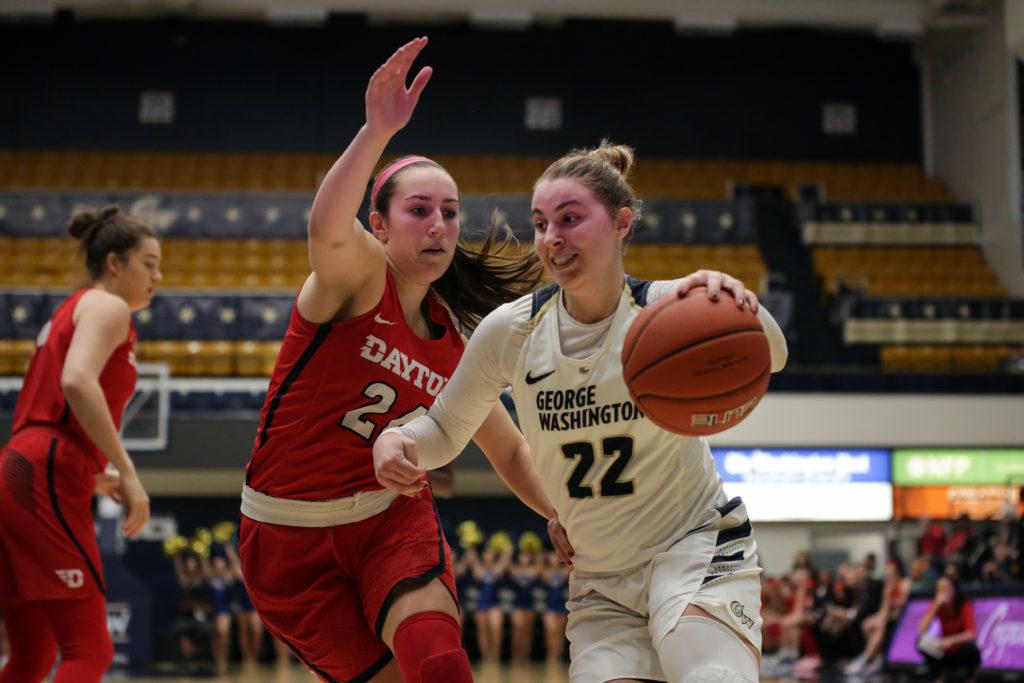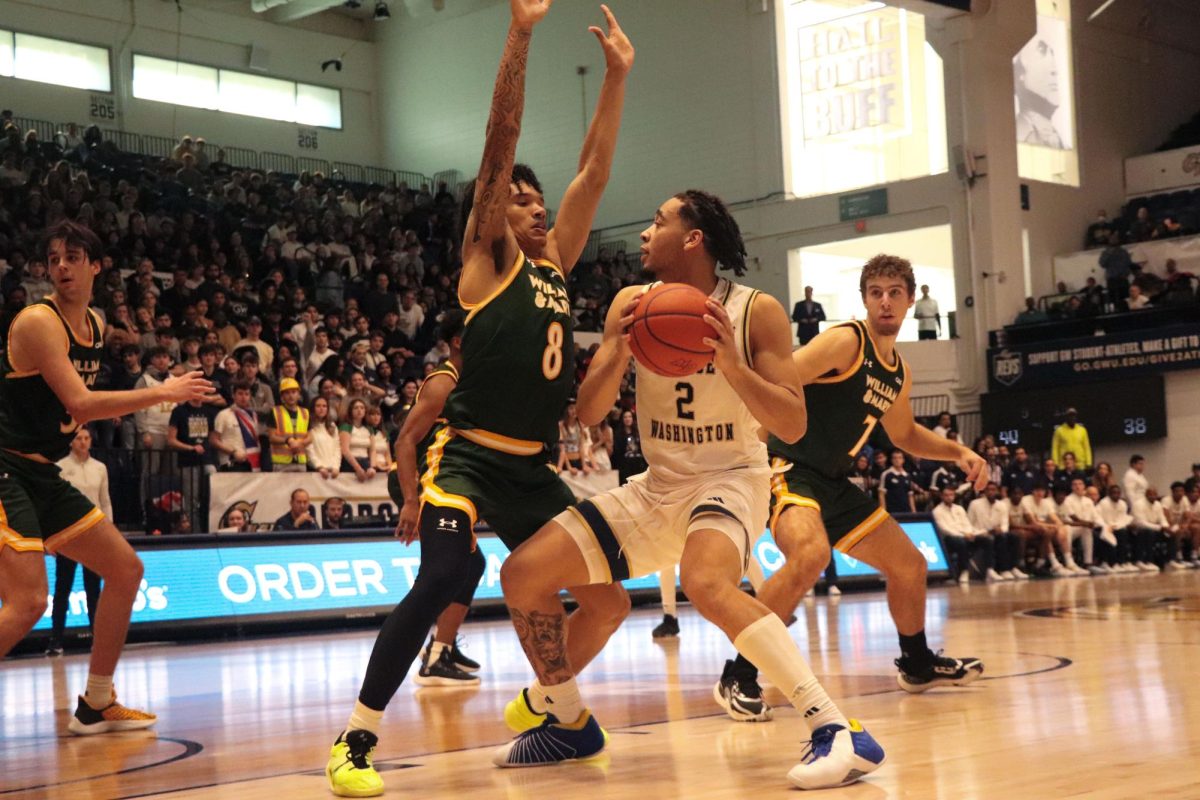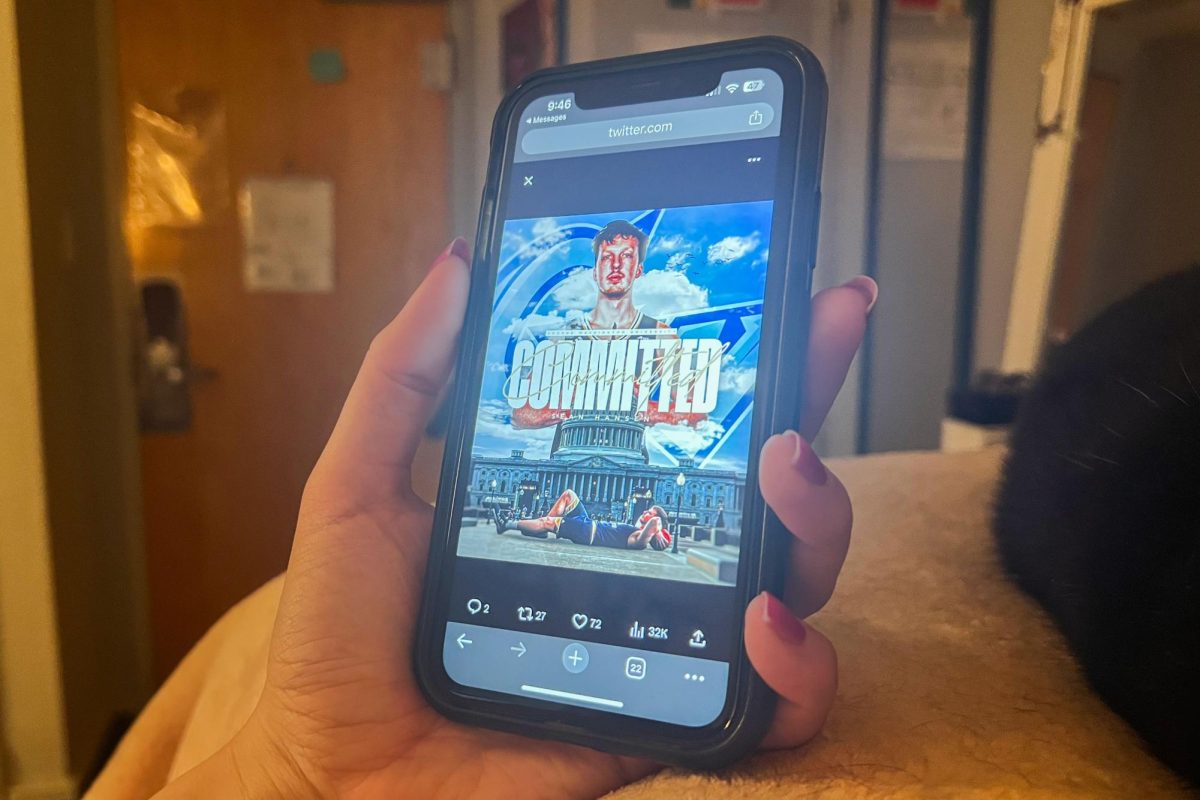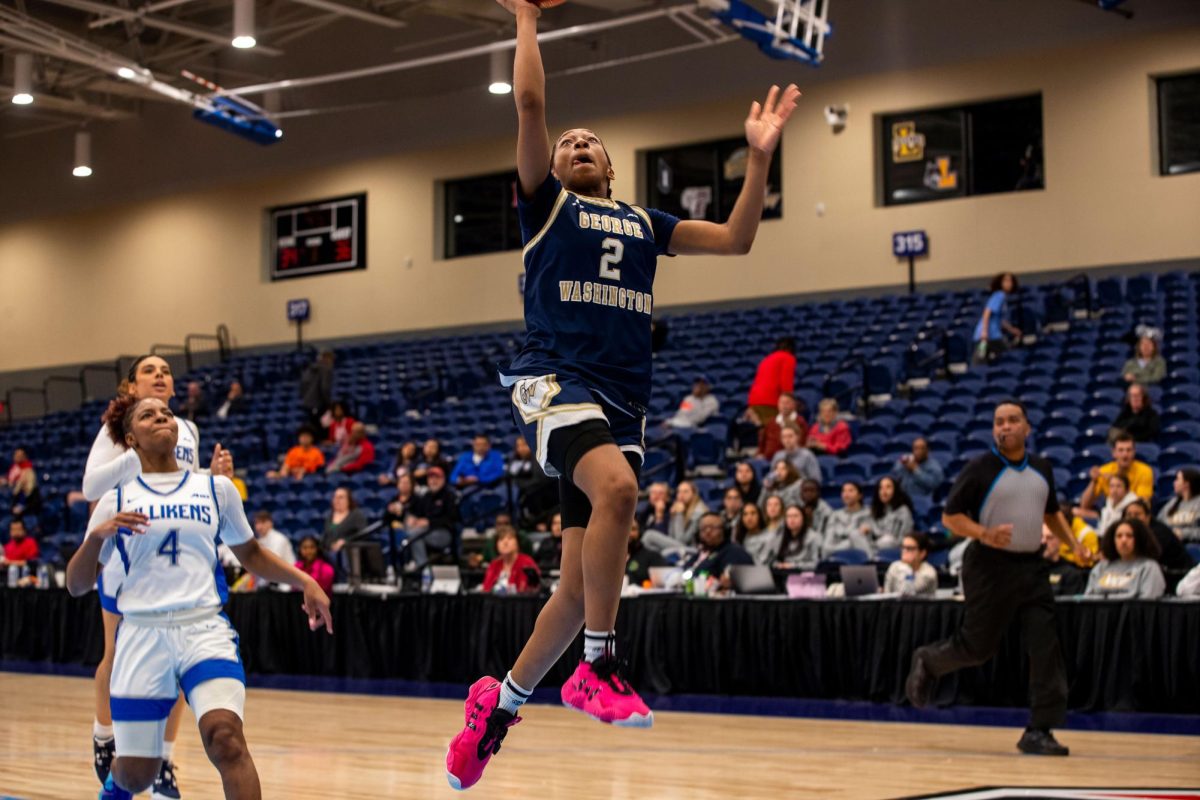Junior guard Maddie Loder is trying to bring attention to mental health issues through women’s basketball’s Season of Change.
Loder said the pressure to excel on the court can be consuming, and the isolation of the 2020-21 season during a pandemic has added another mental health challenge. After spending a week discussing the cause with her teammates on social media, Loder founded GW’s chapter of The Hidden Opponent, an organization focused on reducing the stigma around student-athlete mental health through education and discussion-based events.
“This is something that I’m really, really passionate about,” she said. “And something that I want to be more involved in for more than just a week. So in November, I decided that I was going to create a campus chapter.”
Throughout the season, women’s basketball student-athletes have promoted causes like sexual assault awareness, the Black Lives Matter movement and issues related to the LGBTQ community.
After researching mental health advocacy, Loder founded the University’s chapter of The Hidden Opponent and went through the required training to become a campus captain – or a leader for the athlete’s campus chapter. GW is currently the only Atlantic 10 school to start a chapter of the mental health advocacy group and joins 30 other chapters spanning across the United States and Canada.
Loder said as a student-athlete, she sometimes attaches her self-worth to her on-the-court performance, which she said can be detrimental to an athlete’s mental health. Loder said she’s noticed the issue in herself and in her teammates.
“You think you don’t have any worth outside of your athletic performance,” she said. “And that’s what I see a lot of my teammates struggle with, and that’s the biggest one that I struggle with because it’s just hard. There’s a lot of pressure to perform, and if you don’t perform well, you’re like, ‘That’s kind of it. That’s all that you’re worth.’”
Loder added that the team mostly stays with each other and can’t see family or other friends, which adds another difficulty in coping with the pandemic on top of athlete-specific challenges.
“We go to the gym, and we go to class, and we see each other, and that’s basically every single day for us,” Loder said. “And not seeing our families for extended periods of time, not seeing our friends, not being able to make new friends, which is really hard on our freshmen. This is their college experience of the only 11 people they know are their teammates.”
GW’s chapter held its kickoff meeting on Jan. 15, which Loder said brought in more than 40 attendees from various sports. The chapter wants to serve as a “support group” and “safe space” for student-athletes, educate the broader GW athletic community on mental health and provide coping mechanisms, Loder said.
Loder added that she wants to continue to change the conversation about mental health to be more open about sharing struggles and seeking help.
Loder said student-athletes currently seeking mental health support are directed to the general GW Counseling and Psychological Services, and many athletes speak with athletic trainers who can direct them to different resources. She said resources can be hard to find, and she wants to continue to expand athletes’ knowledge of GW’s mental health offerings.
The Hidden Opponent was founded by Victoria Garrick, a former Division I volleyball player at USC turned mental health activist. Garrick’s popular TedTalk on athletes and mental health led to the founding of her organization.
“This is the first opportunity that I feel like I’ve had to really make a difference, and really share my story, share other stories, and kind of make the athletic department at GW a little more aware of mental health,” Loder said.





